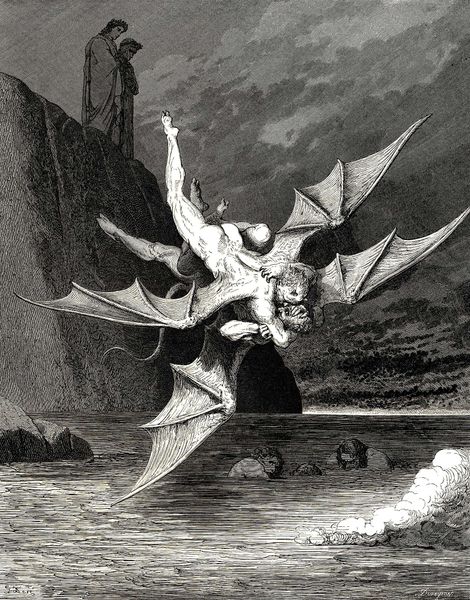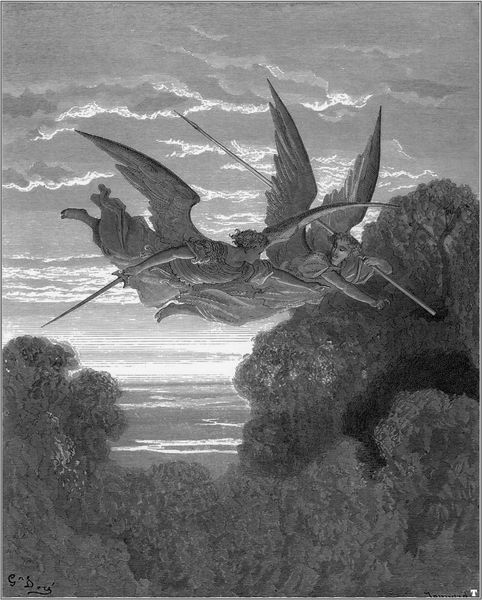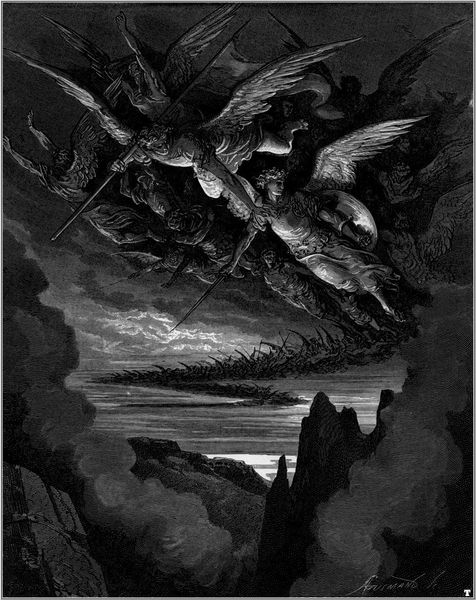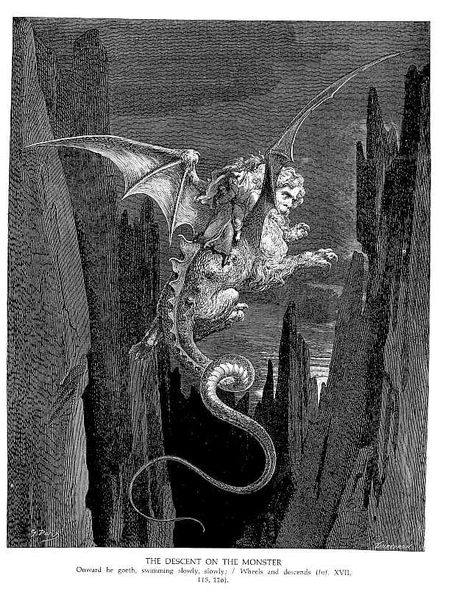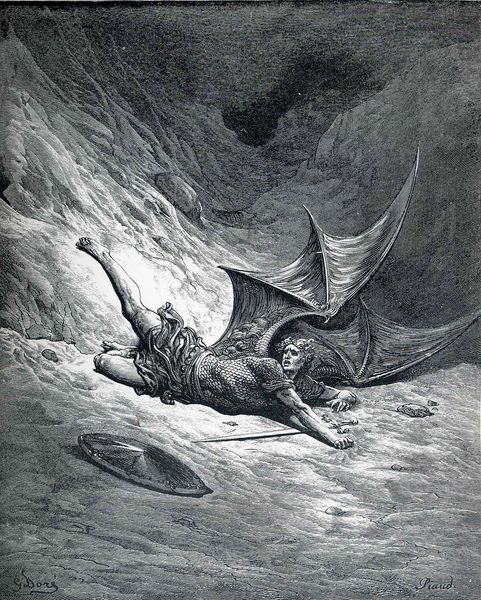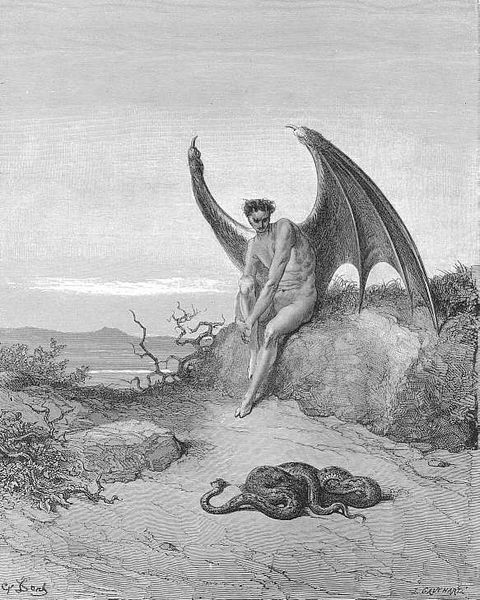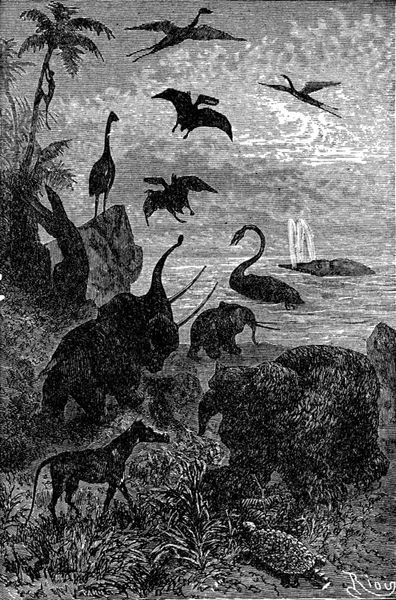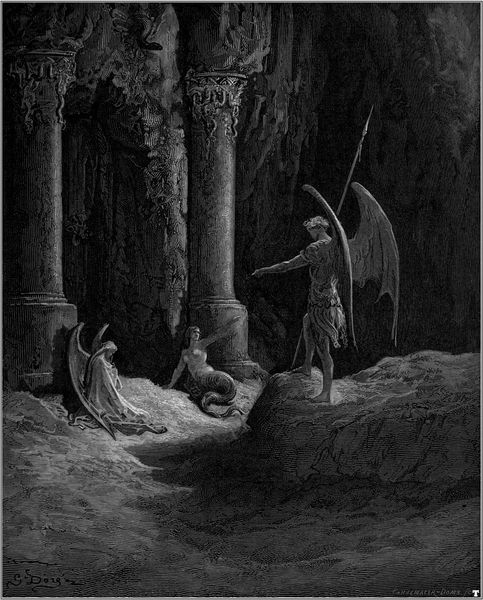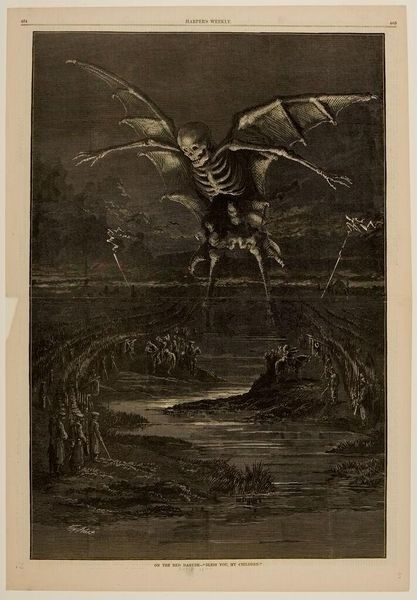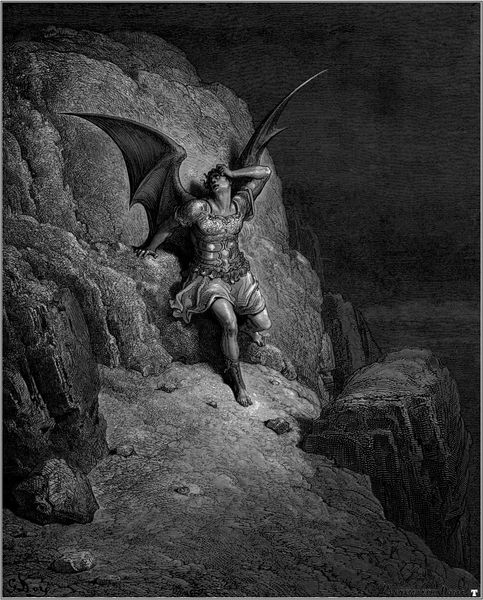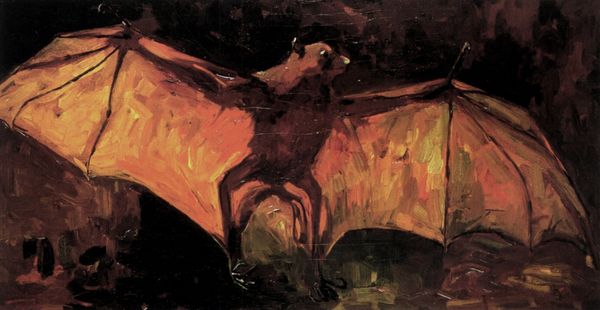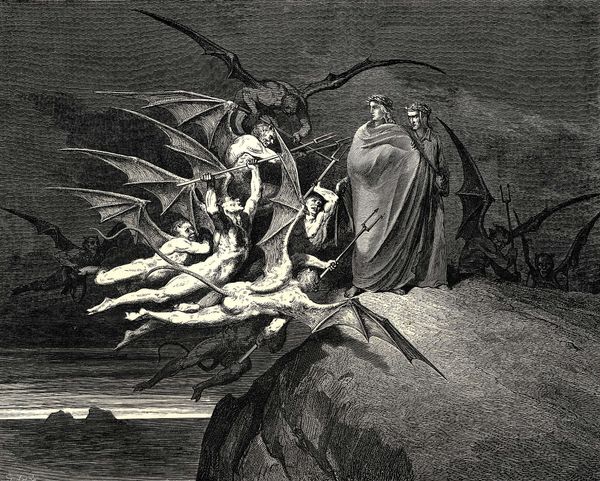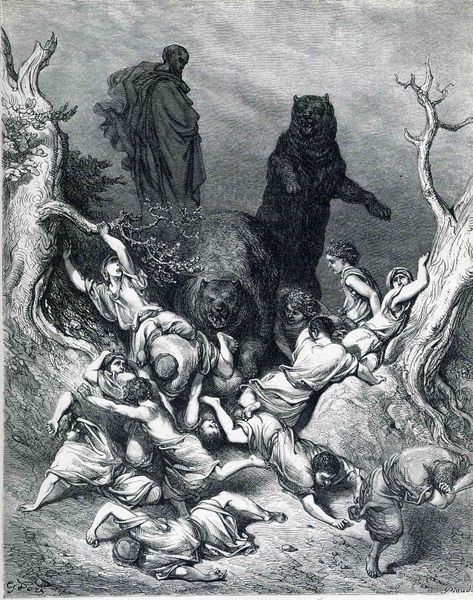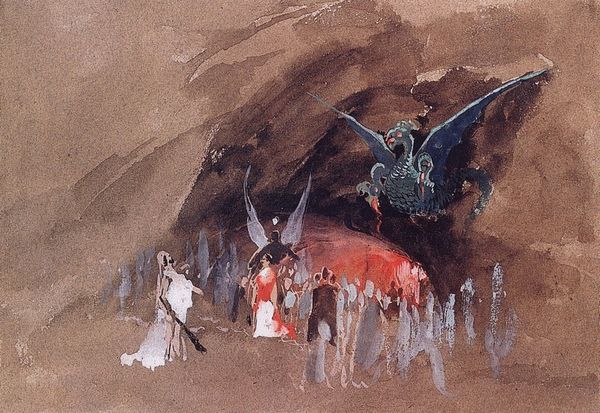
drawing, print, photography, ink, engraving
#
drawing
#
statue
#
monster
#
medieval
#
allegory
# print
#
stone
#
sculpture
#
landscape
#
fantasy-art
#
figuration
#
photography
#
ink
#
romanticism
#
line
#
symbolism
#
history-painting
#
grotesque
#
engraving
#
statue
#
monochrome
Copyright: Public domain
Gustave Doré’s 19th-century engraving captures the chilling scene of Dante’s Inferno, Canto 34, dominated by the brooding figure of Lucifer. He is depicted with bat-like wings, a visual symbol of fallen grace. Consider how wings, in earlier religious art, signify divinity and transcendence. Yet here, they are twisted, anchoring Lucifer to the icy depths of hell. This visual inversion is not unique; we see similar transformations in the depiction of Medusa, whose angelic beauty turns monstrous in Greek mythology. This resonates with our deep-seated fears about the corruption of the sacred. The depiction of Lucifer, seemingly trapped and contemplative, engages us on a subconscious level. The dark, cavernous setting also evokes a sense of primal fear, tapping into our collective memory of the unknown and the abyss. It's a chilling echo of how symbols, laden with cultural weight, can shift and transform across centuries.
Comments
No comments
Be the first to comment and join the conversation on the ultimate creative platform.
